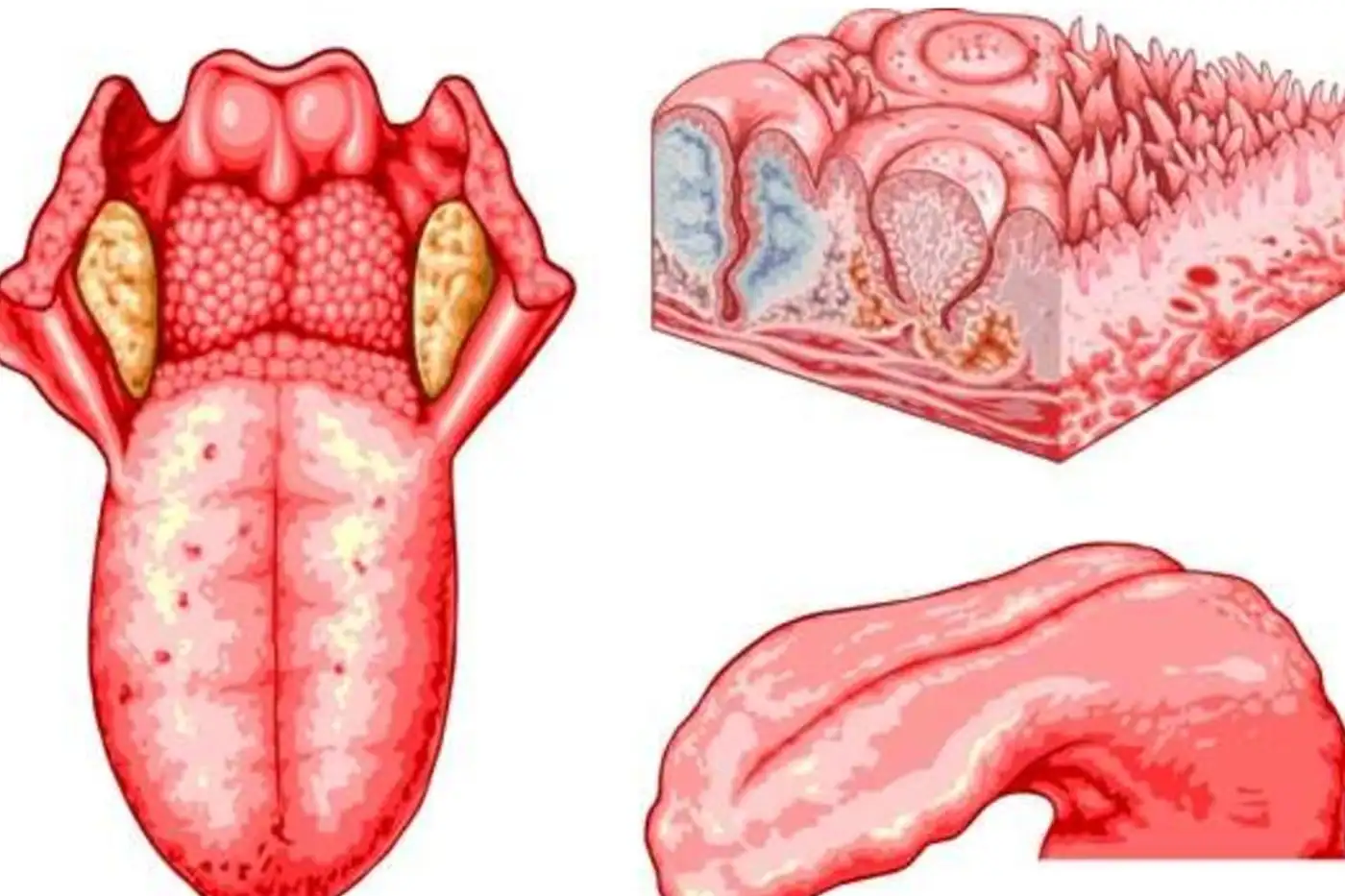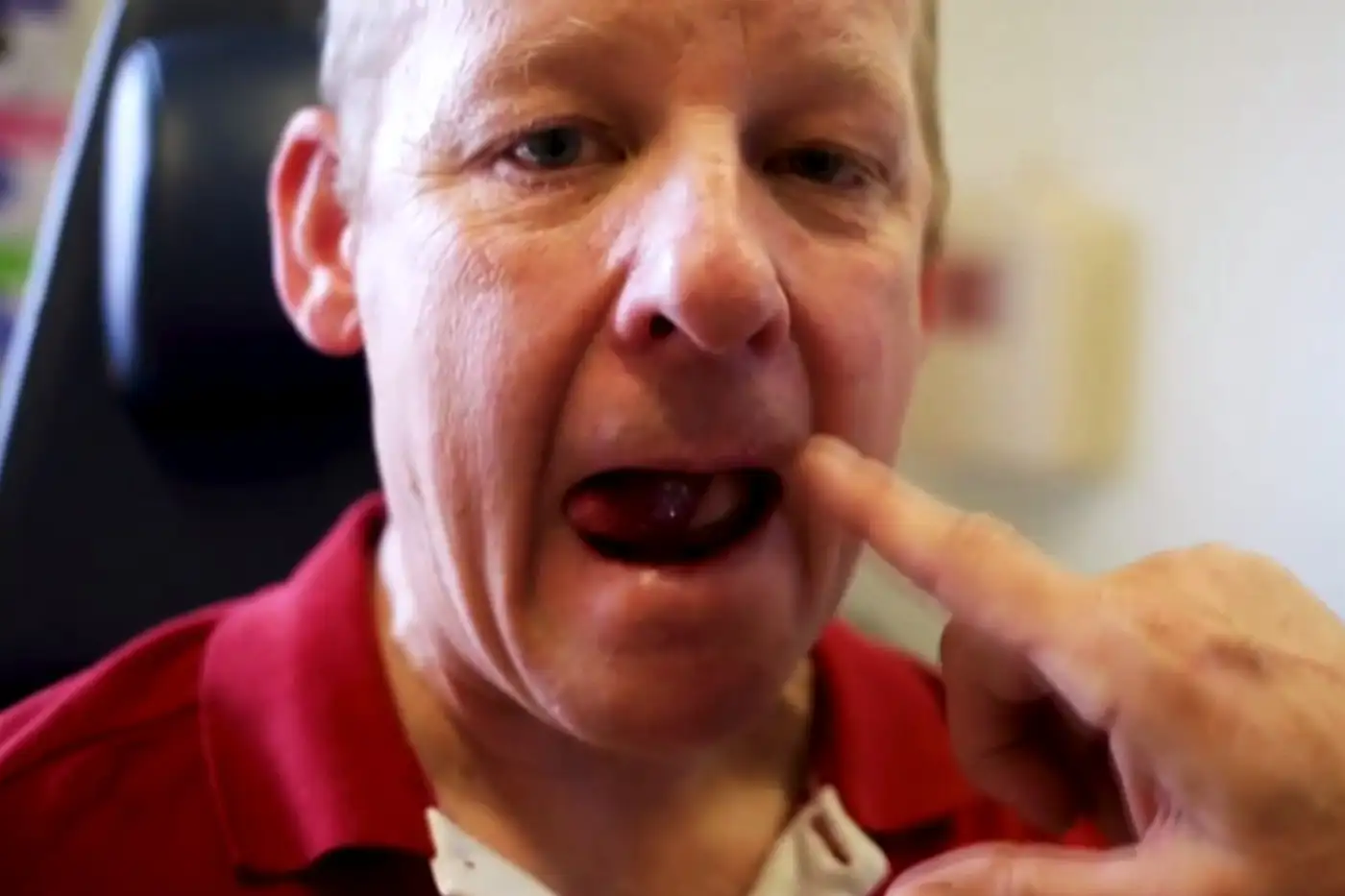Tongue cancer is a type of cancer that starts in the tongue, which is a vital part of our mouth that helps us speak, taste, and swallow. It can be caused by several factors, including tobacco use, alcohol consumption, human papillomavirus (HPV), and genetic factors.

The symptoms of tongue cancer can vary from person to person, but common signs include pain or discomfort in the tongue, difficulty speaking or swallowing, bleeding or ulcers on the tongue, lumps or thickening on the tongue, and loss of taste or sensation in the tongue.
There are several types of tongue cancer, including squamous cell carcinoma, adenocarcinoma, adenosquamous carcinoma, and small cell carcinoma. Each type has different characteristics and requires specific treatment approaches.
The stages of tongue cancer range from Stage I to Stage IV, depending on the extent of the cancer’s spread. Early detection and treatment are crucial for improving survival rates.
Diagnosis typically involves a biopsy, imaging tests (such as CT, MRI, or PET scans), physical examination, and endoscopy. These tests help determine the type and stage of cancer.
Treatment options include surgery, radiation therapy, chemotherapy, targeted therapy, and immunotherapy. The choice of treatment depends on the type and stage of cancer, as well as the patient’s overall health.
Surgery is often the primary treatment for tongue cancer. It involves removing the tumor and affected tissue, as well as reconstructing the tongue if necessary.


Radiation therapy uses high-energy rays to kill cancer cells that may remain after surgery or to relieve symptoms in advanced cases.
Chemotherapy uses drugs to kill cancer cells that may have spread to other parts of the body.
Side effects can include pain or discomfort in the tongue, difficulty speaking or swallowing, dry mouth, fatigue, hair loss, and other symptoms. Managing these side effects is crucial for maintaining quality of life during treatment.
Managing side effects requires a comprehensive approach, including following the treatment plan, staying hydrated, getting enough rest, eating a healthy diet, exercising regularly, and seeking support from loved ones or support groups.
The prognosis for tongue cancer depends on the stage and type of cancer, as well as the patient’s overall health. Early detection and treatment improve survival rates.
Reducing the risk of tongue cancer involves avoiding tobacco products, limiting alcohol consumption, avoiding HPV infection, eating a healthy diet, exercising regularly, and getting regular check-ups.


Resources include the American Cancer Society, National Cancer Institute, Oral Cancer Foundation, local support groups, and online forums and communities.
Research advancements include targeted therapies, immunotherapies, personalized medicine, advanced imaging techniques, and clinical trials. These developments aim to improve treatment outcomes and quality of life for patients with tongue cancer.

Cancer Patients Treated
Our aim is to provide the best cancer treatment & care, make cancer care affordable and accessible to all. Provide cancer care without barriers viz financial, social, logistical, psychological etc. Latest Cancer Treatment based on evidence, delivered with empathy, with highest ethical standards.